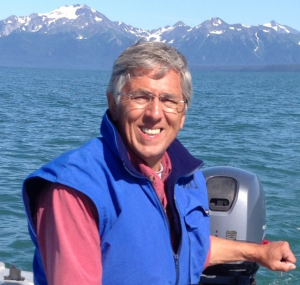 Below is Democratic gubernatorial candidate Byron Mallott’s press release reacting to Gov. Sean Parnell’s State of the State on Wednesday. Mallott, like Parnell, wants more jobs, greater diversification, safer communities, and a robust investment climate.
Below is Democratic gubernatorial candidate Byron Mallott’s press release reacting to Gov. Sean Parnell’s State of the State on Wednesday. Mallott, like Parnell, wants more jobs, greater diversification, safer communities, and a robust investment climate.
The two areas of disagreement are on education and expanding Medicaid.
Late last year, Parnell rejected federal money to expand Medicaid, a joint federal/state insurance program for poor Alaskans. “Governor Parnell’s refusal to accept the Federal Medicaid Waiver must be reversed so that 40,000 vulnerable Alaskans can receive the health care they urgently require,” Mallott wrote.
In his State of the State, Parnell called for reform of the state’s educational system, including allowing the public to vote on whether or not public money should go to private and educational institutions.
“Public dollars must go to public schools,” Mallott wrote.
Here’s Mallott’s press release in full:
Alaska is a state of great promise and our future as Alaskans can be bright. But we need leadership to match the challenges and opportunities of today. Alaskans are faced right now with a public education funding crisis that demands immediate legislative action. Governor Parnell wants to divert public dollars to private education when every public education dollar must go to making Alaska’s education system the very best. Public dollars must go to public schools.
Alaskans together must address the challenge of a $2 billion budget revenue deficit that is expected to grow in future years. This session of the Alaska Legislature must focus diligently on reshaping spending to meet the urgent needs faced by every Alaskan, their families, and communities. Governor Parnell’s refusal to accept the Federal Medicaid Waiver must be reversed so that 40,000 vulnerable Alaskans can receive the health care they urgently require. Public safety and a justice system that is responsive to the need of every Alaskan must be strengthened. Job creation and economic diversification is crucial. Reducing the cost of energy for electricity, heating and transportation in Alaska must be a priority. A gas pipeline project that meets Alaska’s need for in-state energy, stable long-term export revenue, and jobs for Alaskans must be a priority that all Alaskans can understand and embrace. A stable, durable oil tax that is needed both for vital oil industry investment and robust public revenue must be agreed to by all Alaskans.
Governor Parnell’s agreement with Alaska democratic legislative leaders’ call for funding Alaska’s pension retirement gap is a step in the right direction to meet both responsible budgeting and a constitutional obligation. I urge the Legislature and Governor in these critical times to reach out to all Alaskans so that together in open, transparent, and responsible dialogue and decision making we can make the best choices for Alaska’s future.
Contact Amanda Coyne at amandamcoyne@yahoo.com
